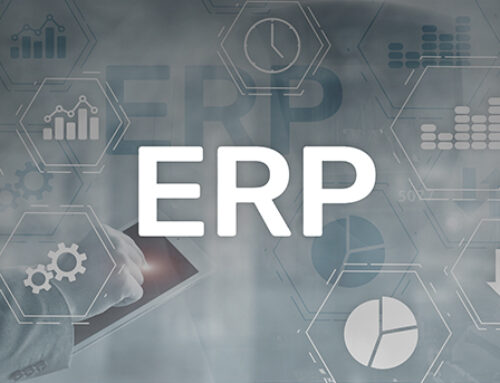Selecting the most suitable and efficient content management system (CMS) to develop, manage, and distribute material across numerous channels is essential to implementing a digital and strategic customer experience (CX) that sticks. It’s about leveraging technology that meets a brand’s operational requirements while exceeding customers’ expectations and sustaining them.
However, it is a critical decision for individuals and organizations that want to manage and publish digital content effectively. A CMS helps streamline content creation, editing, organization, and publishing processes. But it’s crucial to understand why picking the appropriate CMS is so important.
Why is it important to choose the right CMS?
For organizations and individuals looking to build and maintain a successful online presence, choosing the correct Content Management System (CMS) is critical. A CMS serves as the foundational framework for creating, managing, and organizing digital content such as websites, blogs, and online stores. The decision regarding which CMS to adopt has far-reaching implications that extend beyond the initial setup.
Firstly, the choice of CMS directly influences the user experience. A well-designed and user-friendly CMS empowers content creators and website administrators to easily publish, edit, and organize content without requiring in-depth technical expertise. This streamlined content management process enhances productivity, reduces the learning curve, and ensures consistent content updates.
Secondly, the scalability and flexibility of a CMS impact a website’s growth potential. The CMS must accommodate new features, integrations, and increased traffic as businesses expand and evolve. The suitable CMS provides a robust foundation that can be scaled without sacrificing performance or stability.
Moreover, the SEO-friendliness of a CMS contributes significantly to a website’s visibility in search engine rankings. A CMS with built-in SEO tools and capabilities enables content creators to optimize their content for search engines, leading to higher organic traffic and improved online discoverability.
Key factors to consider while selecting a Content Management System (CMS)
Ease of Use and User Interface:
A user-friendly interface is essential for content creators and editors who may need to gain advanced technical skills. The CMS should have an intuitive dashboard, easy-to-navigate menus, and a WYSIWYG (What You See Is What You Get) editor that resembles the final content layout. This factor is crucial to ensure efficient content management without excessive training requirements.
Scalability and Flexibility:
Consider your future needs for the CMS. Will you be adding more websites, pages, or content types over time? Ensure that the CMS can accommodate your growth without significant performance degradation. Look for a CMS that supports extensions, plugins, and customization options to adapt to changing requirements.
Content Types and Customization:
Websites may require different content types, such as articles, blogs, videos, images, etc. A good CMS should allow you to define and manage various content types efficiently. Look for flexibility in creating custom fields, templates, and taxonomies to ensure your content can be presented in the desired format.
SEO Capabilities:
Search engine optimization, or SEO, is essential to boost the visibility of your website in search engine results. A CMS should have tools or plugins for optimizing metadata, URLs, headers, and other on-page features. It should also be simple to integrate with third-party SEO tools.
Security Features:
Security is paramount for protecting your content and user data. Look for a CMS with solid security features, including regular updates, user authentication and authorization controls, encryption, and protection against common vulnerabilities.
Performance and Speed:
Websites that load slowly may provide users with a bad experience and receive worse search engine ranks. Choose a CMS that is optimized for speed or one that allows for efficient caching and content delivery networks (CDNs) to ensure fast page loading times.
Mobile Responsiveness:
With a significant portion of internet traffic coming from mobile devices, your chosen CMS must support responsive design. This ensures that your content displays properly on various screen sizes and devices.
Community and Support:
A thriving community and robust support ecosystem can be immensely helpful. Look for a CMS with an active user community, forums, documentation, and official support channels. This will aid in troubleshooting issues and getting assistance when needed.
Cost and Total Ownership Expenses:
The cost of a CMS can include licensing fees, hosting expenses, and additional charges for themes, plugins, and custom development. Consider both upfront costs and long-term expenses when evaluating different CMS options.
Integration Capabilities:
Your content management system (CMS) should work in unison with all the other software and services you employ, including social media networks, e-commerce platforms, analytics tools, and email marketing platforms. Integration capabilities can significantly enhance your content strategy and marketing efforts.
Future Upgrades and Maintenance:
A CMS should have a clear roadmap for future updates and improvements. Regular updates are essential to maintain security, compatibility, and feature enhancements. Make sure the CMS you choose is actively maintained by its developers.
Content Migration:
If you’re migrating from an existing CMS or platform, consider how easy it is to migrate your content and data to the new system. The process should be smooth and avoid significant data loss or complications.
Choose the right partner to help you select the best CMS
A web development company can play a crucial role in helping businesses choose the right Content Management System (CMS) for their website needs. With their expertise, they can assess the specific requirements and goals of the business, considering factors such as scalability, customization, ease of use, and future growth. By understanding the unique needs of the business, a web development company can recommend and implement the most suitable CMS solution, ensuring a solid foundation for efficient content management, seamless user experience, application development and successful online presence.
In conclusion, the selection of a CMS is a strategic decision with lasting impacts. A well-chosen CMS enhances user experience, enables scalability, boosts SEO efforts, ensures security, facilitates customization and supports seamless integration with other tools. Investing time in researching and selecting the right CMS upfront can save substantial resources and avoid potential challenges down the road, ultimately contributing to the long-term success of an online presence. By evaluating these aspects in detail, you can choose a CMS that aligns with your needs and sets the foundation for effective content management and digital presence.





Leave A Comment